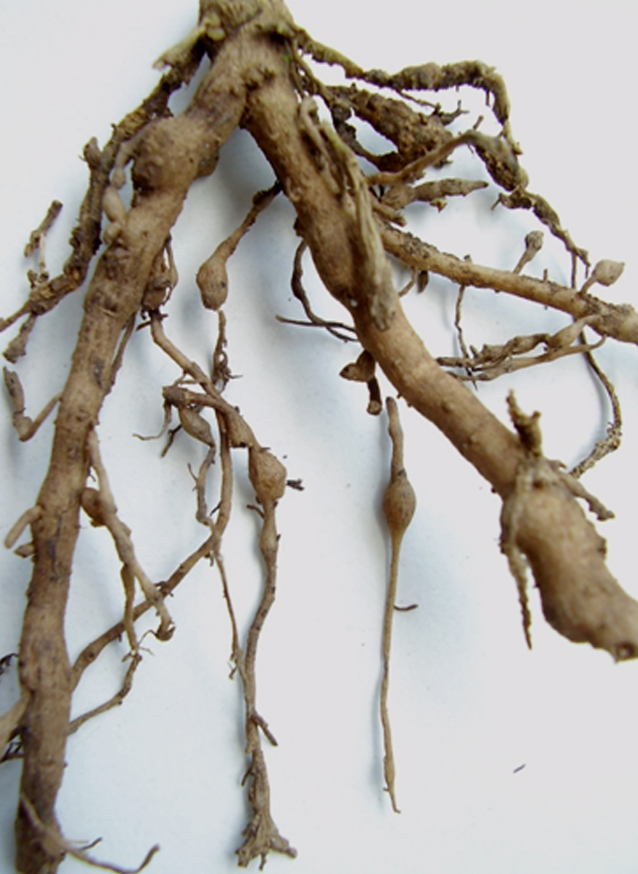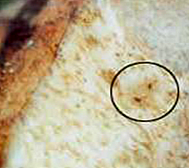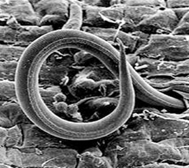Root knot nematodes (Meloidogyne spp.)
Symptom:
- Endoparasites.
- Nematode enter the roots remain inside and complete their life cycles.
- Infected roots exhibit charactesritic swellings and galls at the tips.
- Tin general the nematode affected plants exhibit pale yellow leaves with dried margins.
- In case of severe infestation the plants may fall off on slight push by hand or wind.
- Planting of infested suckers do not establish and delay growth.
- Checking of bunches, reduction in total weight and size of fruits are also encountered as a result of heavy infestation.
Management:
Paring and pralinage
Paring
- The pared sets should be dipped in a Bordeaux mixture – DBCP paste (made by mixing 20 kg hydrated lime, 20 kg copper sulphate, 1288 ml 70% DBCP and 455 litres of water)
Pralinage
The sets should be soaked for a few seconds in 550 ml DBCP plus 40 litres of clay for sets disinfection. This treatment completely coated the set in a persistent nematicidal preparation. In place of DBCP, Carbofuran can also be used @ 40 g / sucker at planting time and another application at the fourth month of crop growth.
- Use certified suckers free from nematodes.
- Sucker selection from disease infested field should be avoided
- Follow a suitable crop rotation
- Flood fallowing for about 5 months destroys not only the Fusarium but also the burrowing nematodes.
- Application of DBCP @ 40 l / ha at planting time (May and June) and 2.5 l / ha in October gave excellent control of nematodes
- Application of D-D @ 300 l / ha and EDB @ 150 kg / ha significantly controls the nematodes and increases the yield but is costly.
- Suckers were trimmed and dipped in slurry solution and sprinkled with carbofuran @ 15 g per sucker.
- Carbofuran granules @ 20 g should be applied at the time of planting, 2nd and 4th month after planting.
- Before planting, neem cake and pungam cake @ 200 g should be applied per pit.
- Sun hemp and chrysanthemum should be grown 45 DAP of Banana and incorporated into the soil one month later.
- Marigold (Tagetes spp) grown as an intercrop cum trap crop in Banana field resulted in significant reduction of root lesion nematode population and increased the yield.
- Resistant varieties should be grown.
|



